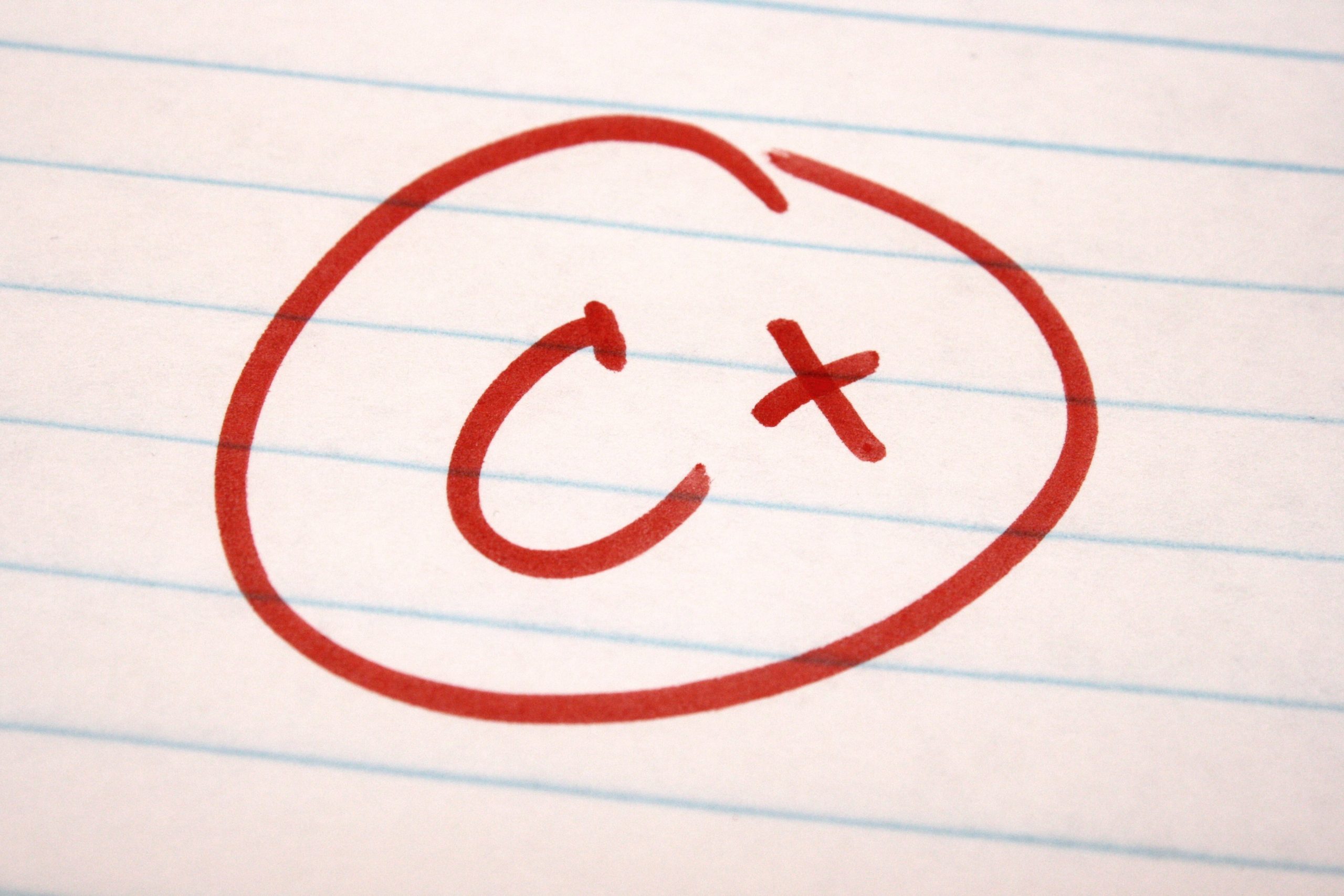
At many law schools, including the one where I teach, grading is covered by a mandatory curve. By definition, therefore, some students will get As, some will get Bs, and some must get Cs or lower. Many of you have never received a C before, so first semester 1L grades can be a shock to the system.
Of course you want to do well, and of course grades are important. No point in downplaying either of these realities. But there are a few important things to think about—and do—if you are not satisfied with your first semester grades.
Keep Things in Perspective
First and foremost is not to panic or despair. Yes, grades are important, but I have friends from law school who finished low in our class and went on to be tremendously successful lawyers. There’s an old saying, The A students become law professors, the B students become judges, and the C students become millionaires! This was apparently written by a law professor, but there’s some truth to it! In any event, though, your response to disappointing grades is more important than the grades themselves. As Abraham Lincoln said, “My great concern is not whether you have failed, but whether you are content with your failure.” So step No. 1 is to maintain a positive attitude and resolve to do the things that will bring your grades up next semester.
Diagnosis
Step No. 2 is diagnosing what went wrong. There are multiple reasons that your grade might not have been as high as it could be, and you can’t fix a problem until you’ve identified it. The problems I regularly see fall into a few categories: (1) students who didn’t properly master the material; (2) students who mastered the material but who didn’t manage to get their work down “on paper” during the exam; and (3) students who went off on a tangent and addressed the wrong issues. Sometimes it’s a combination of these and sometimes it’s a totally different issue, but these are the common ones.
So do your best to figure out the cause of your performance. The best way to do this is to meet with your professor and ask them to help you understand where you fell short. You can also do some self-assessment here. If your professor provided a model answer, you can evaluate whether you identified and addressed the critical issues, whether your understanding matched the explanation in the professor’s model, and how your discussion of the issues compared to your professor’s. If your professor didn’t provide a model answer, consider speaking with a classmate who did well on the exam.
Cure
Step No. 3 is trying to cure the problems you’ve experienced. The most effective cure, of course, depends on the nature of those problems. Lack of understanding is the hardest to fix, so we’ll save that for last. We’ll start with what to do if you went off on a tangent and spent a lot of time on an irrelevant issue. That’s most often a consequence of moving too fast during the exam and not reading the prompt carefully enough. Time pressure is often a factor in law school exams, so it can be tempting to start frantically typing the instant you are allowed to. That’s usually a mistake. Read the prompt carefully and identify the scope of what you are being asked to address, then focus on that core content. Some prompts may ask you to address any issues you see, in which case a broad-brush approach is warranted. But often, the prompt asks you to analyze specific issues. If so, don’t waste your precious time addressing other issues that are potentially implicated by the overall situation.
If your primary problem is failing to get all of your analysis down on paper, your problem is readily addressed, but it requires a change in attitude and a different understanding of what professors are looking for in exam answers. In many situations, the emphasis in a law school essay question is not the ultimate answer. If the question involves whether the court has diversity jurisdiction and you do a very careful, thoughtful, comprehensive analysis in your head and then write down one sentence stating, “Yes, the court has diversity jurisdiction,” you are unlikely to get a passing grade even if your conclusion was absolutely correct. Your professors want to test your understanding of the doctrine and all its nuances much more than they want to see your ultimate conclusion. The key is to show all of your work. It can be natural to think, the professor knows this so I don’t have to explain it, but that thinking is a recipe for disaster. The best way to describe the proper mindset I’ve come up with is to imagine that you are explaining the answer to your smart nine-year-old niece who knows nothing about the law. If you capture your analysis as if you were describing it to that niece, describing all of the rules in plain, thorough detail and then applying those to each and every fact or circumstance in the problem, you’ll thrive (not only in law school, but in practice).
Finally, if your primary problem is your understanding of the material, you need to make meaningful changes your overall approach to law school—what you did last semester didn’t work. So, make sure you are prepared for every class and stay engaged during class. Take more notes or raise your hand to volunteer or ask questions. Join a study group if you weren’t in one. Do more practice problems. Go to office hours and ask for help. Start your outline earlier, and maybe send it to your professor if they are willing to review it for you. Because there is time pressure on exams, over-learning the material can make a huge difference.



